Pain Relief & Emergencies
Dental emergencies can occur at any time and – like anything that threatens your health – they should not be ignored. Quick and effective treatment can be crucial for eliminating pain, saving a tooth, or fighting infection.
If you experience a dental emergency, please don’t hesitate to contact us. If you are calling when the clinic is closed, please contact your nearest hospital or after hours GP.
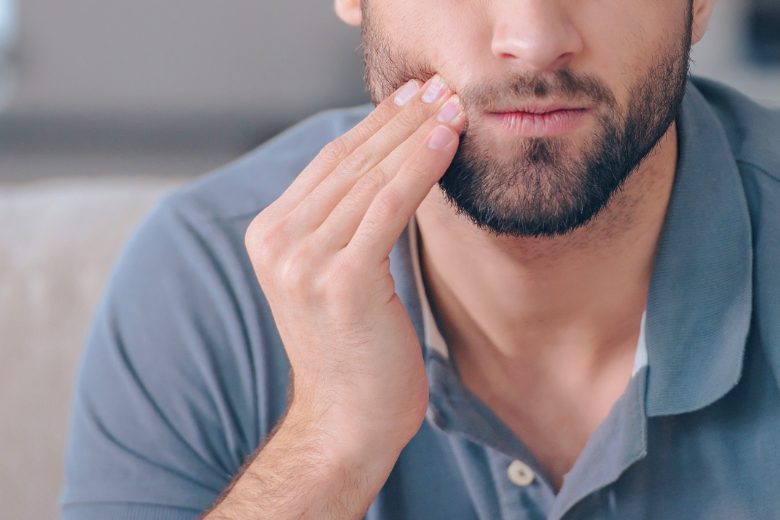

KNOCKED OUT TOOTH
If you knock out your adult tooth time is critical. If it’s dirty, first rinse the tooth’s root with water VERY briefly, being careful to hold it by the crown. Then either place it carefully back in its socket, place in milk, or tuck it in your cheek. Bring it to the dentist immediately.
BROKEN TOOTH
If you break your tooth – try to locate and bring in the broken piece.
DAMAGED LIPS OR TONGUE
If you hit your face and injure your lip/tongue – gently cleanse the area and apply an ice cold compress.
ORAL INFECTION
If you feel feverish, nauseous or are vomiting and suspect the cause may be a spreading dental infection, present immediately to the nearest hospital emergency department.
Gum disease
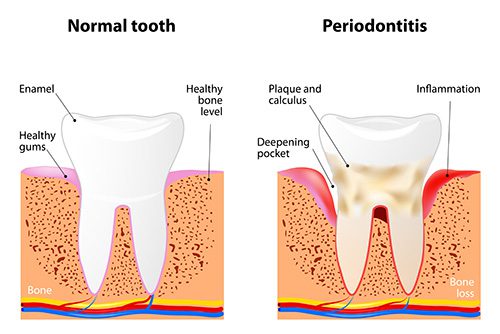

Just like the cement foundations of a building or house, your gums form the foundation of your dental health. Gum diseases including periodontitis and gum recession are serious oral health issues, and the most common cause of tooth loss. Symptoms for gum disease include bad breath or painful gums or abscesses, but are often present without any obvious symptoms whatsoever.
An accumulation of bacteria along or under the gum line may manifest as gingivitis (quite common during pregnancy). Of more concern, it may lead to periodontal disease – where loss of the bone which holds the teeth occurs and can result in tooth mobility and ultimately tooth loss. Found in its earliest stages, periodontal disease is more easily treated. If left untreated, periodontal disease is likely to progress, requiring more invasive treatments and potentially risking total tooth loss. Periodontal disease has also been linked to heart disease and diabetes.
root canal
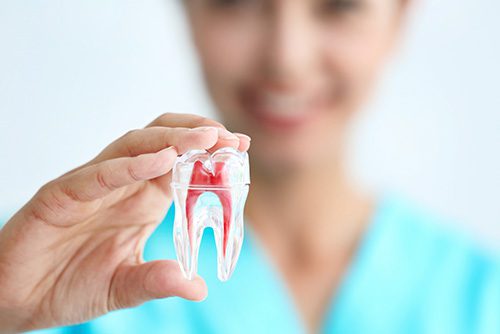

The pulp (or nerve) is the live portion inside the tooth that contains nerve endings and tissues. When decay or damage has allowed bacteria to infect the pulp, patients can experience pain, swelling and even total tooth loss if left untreated. Root canal treatment involves removing the damaged and infected internal parts of the tooth, allowing you to save the tooth. In some cases, an antibiotic is prescribed to help prevent further infection spreading. The portion of the tooth that remains may need to be restored using a crown (cap) that provides a natural appearance, strength and normal tooth function.
For more information about root canal treatment and whether it applies to you, schedule a dental exam and consultation at your earliest convenience.
extraction
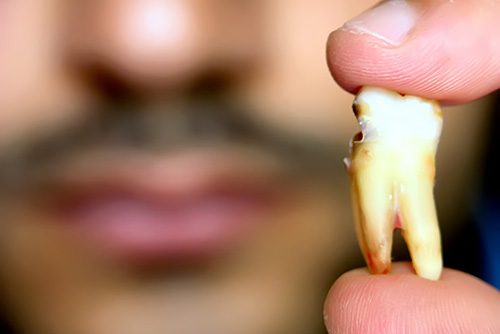

Tooth extractions are routine dental procedures performed to remove decayed, damaged or otherwise problematic teeth. Dentists usually make every effort to preserve natural teeth, although sometimes an extraction is necessary. Depending on which teeth are removed, they may be replaced with a dental implant or another dental prosthetic – sometimes both procedures can be performed on the same day.
The most common cause of tooth extraction is severe untreated tooth decay (dental caries). However, many patients also undergo extractions for impacted teeth – in particular for wisdom teeth. Other causes for extraction include advanced periodontal (gum) disease and cracked teeth. Although some circumstances that require extraction are unavoidable, many can be prevented with regular visits to the dentist and appropriate early intervention.
Wisdom Teeth Removal & Oral Surgery
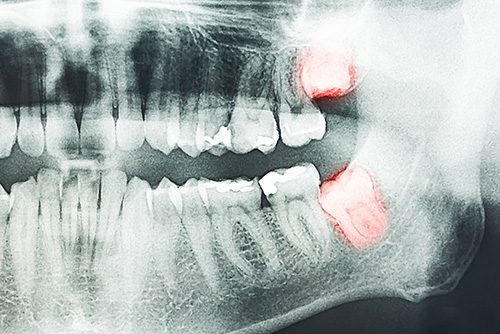

The wisdom teeth are the final four teeth to erupt from the gums – usually sometime between age 17 and 25. Ideally, they emerge and remain without complication. However, in some cases they cause overcrowding or grow at an angle that can later be problematic, making it difficult to clean and leading to dental diseases. Removal of problematic wisdom teeth can prevent infection, crowding and other complications. You may need your wisdom teeth removed if you have one or more impacted wisdom teeth or if you are having difficulty adequately cleaning those that have emerged.
Dentists recommended that all young adults have their wisdom teeth evaluated. A consultation and x-ray can reveal impaction, damage to neighbouring teeth, signs of decay, gum disease, or possible complications with future wisdom tooth eruption.
Denture Repairs


A broken denture can be quite distressing. Thankfully, often a denture can be repaired on the same day, however for more complicated denture repairs and additions, this may take longer. Care is taken to reduce turnaround times whilst providing a quality repair of your valuable prosthesis.
Fixing Broken Teeth
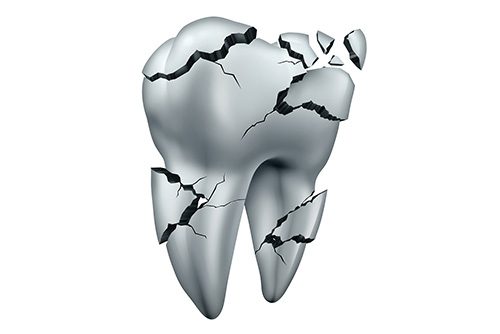

Many things can cause teeth to break – from tooth grinding and sports accidents to chewing hard foods or even biting a fork too hard during a tasty meal. Depending on the cause and the extent of the damage, teeth can often can be repaired with a filling. Sometimes a crown can be used to restore the original function, shape and size of the natural tooth. Whilst saving the tooth is the ultimate goal, sometimes with severe damage root canal treatment or an extraction and replacement (in the form of an implant, denture or sometimes a bridge) may be required.
Splints & Retainers
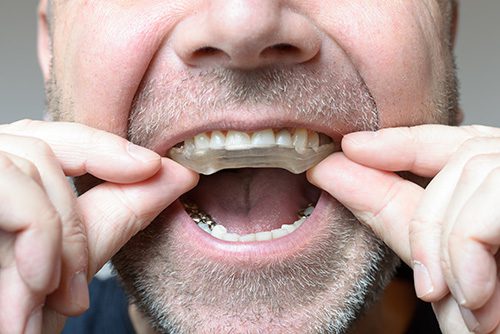

Splints are custom-made appliances for patients to wear at night when clenching or grinding is causing (often irreversible) tooth damage. Tooth grinding places a lot of pressure on your teeth, possibly cracking their protective enamel, causing fractures and breaking crowns and fillings in your mouth. It also places great stress on your jaws joints and muscles.
Most people aren’t even aware they are grinding their teeth until their partners tell them or advanced symptoms such as jaw pain, headaches and worn down, sensitive teeth start to emerge. You might also find your teeth are more sensitive to temperature fluctuations, and more painful to bite down on as the fibre that attaches the teeth to the bone gets bruised. It is preferable to wear down a splint, instead of your own tooth enamel. A splint also reduces the stress on your jaw muscles which contribute to the problems. Muscle relaxants have also been shown to reduce excessive jaw muscle activity.
